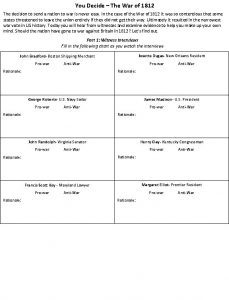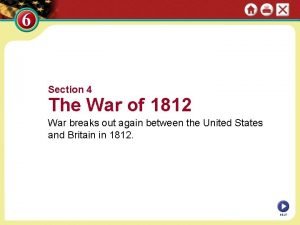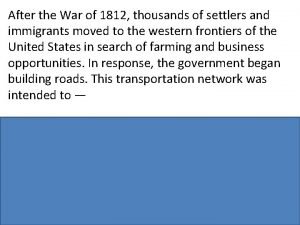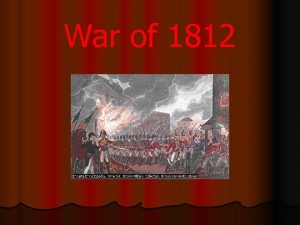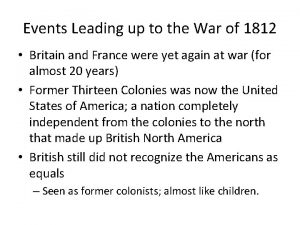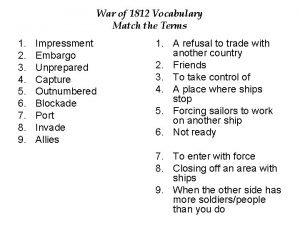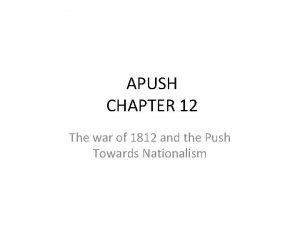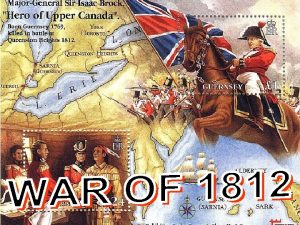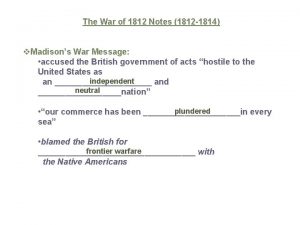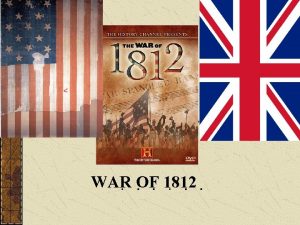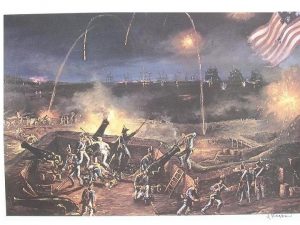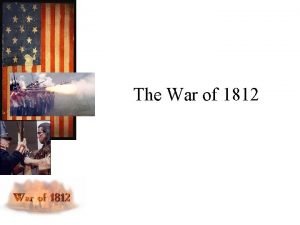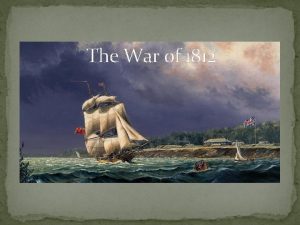WAR OF 1812 1814 CAUSES OF WAR In








- Slides: 8

WAR OF 1812 -1814

CAUSES OF WAR In 1812, the United States goes to war with Britain for the second time. There are four major causes: 1. the war between Britain and France threatens US shipping industry in the Northeast 2. British impressment of US ships 3. Pres. Madison’s belief that Britain is trying to ruin the US economy 4. Political pressure from War Hawks in Congress (they wanted to win Canada and Florida from the British)

Nov. 1811: US begins military buildup to prepare for war with Britain * War Hawks (John C. Calhoun and Henry Clay) believed the war was necessary to defend US citizens at sea and ` recover ships/sailors lost due to impressment * Also believed it would help defend against Indians in Spanish Florida John C. Calhoun * Federalists worried it would hurt trade Henry Clay

June 1812: US declared war on Britain * all 30 Federalists (and most NE Republicans) in Congress oppose a declaration * Southern and Western Republicans supported the war (thought it would be quick and easy) 1812 -1814: British forces attacked US in areas around the Great Lakes * major resistance from New Englanders over war 1814: British attacked and burned Washington, DC * Dolly Madison saved important paintings, papers * Francis Scott Key wrote the “Star-Spangled Banner” anthem) poem (that later is made into the US national

Hartford Convention * Federalists from New England met to discuss anger over war, embargo * discussed secession, called for one term limit for president (angry at Jefferson’s embargo during his second turn), wanted to diminish presidential powers * no real change was enacted

TREATY OF GHENT Dec. 1814: No real victor declared (status quo antebellum) * no territorial gains (boundaries set at prewar status) * War Hawks upset at having to give up land Jan 1815: Battle of New Orleans * Andrew Jackson led a successful surprise attack on British forces at the port of New Orleans * Boosted morale and elevated his own stature as a symbol of “rugged individualism” and “frontier determination” Andrew Jackson

CONSEQUENCES OF WAR OF 1812 The effects of the war on the United States included: 1. Confirmation of American independence 2. Rise in nationalist spirit (people collectively considering themselves “Americans” for the first time) 3. Destruction of New England shipping and trade destroyed 4. End of the Federalist party 5. Creation of peaceful relations between the US and Britain * reopening of trade * 10 -year joint occupation of Oregon Territory

SYMBOLS OF AMERICAN NATIONALISM

